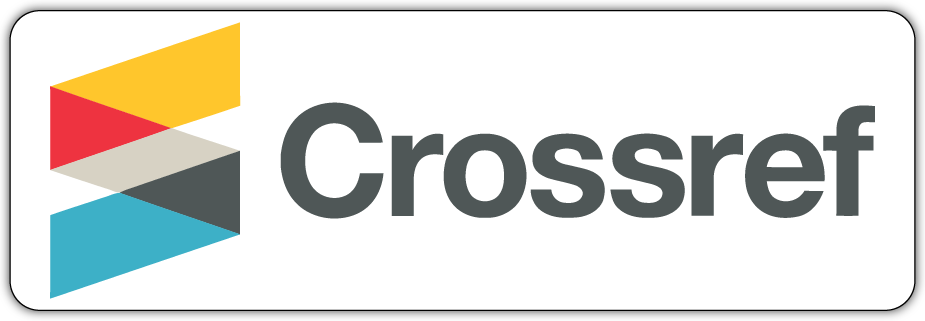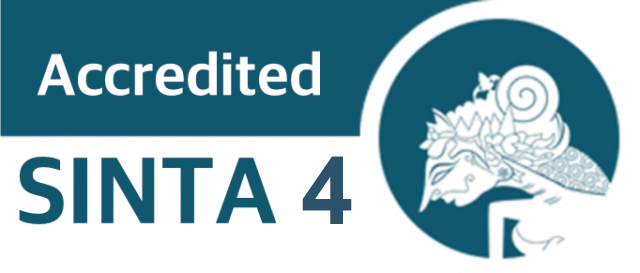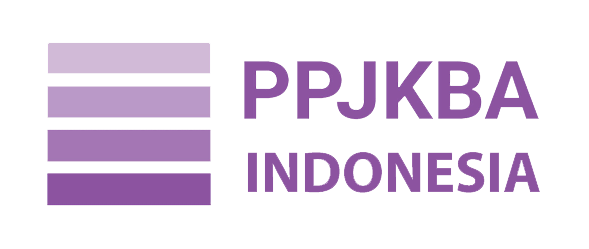ANEKA DISRUPSI PEMBELAJARAN BAHASA ARAB DI PONDOK PESANTREN
Abstract
Islamic boarding schools, as traditional Islamic educational institutions in Indonesia, play a central role in preserving and promoting Islamic religious and cultural traditions. One of the important elements of education in Islamic boarding schools is the teaching of Arabic. Arabic is not only a means of understanding the teachings of Islam but also a gateway to the rich intellectual heritage of the Islamic world. This qualitative research uses open questionnaires as a data collection technique. The questionnaires were distributed to Arabic teachers in seven Islamic boarding schools in Situbondo. The results cite the strengths of Islamic boarding schools in the form of their long-standing tradition of teaching Arabic and Islamic culture, the presence of knowledgeable teachers, a focus on memorizing the Quran, and a communal learning environment. However, weaknesses in the traditional curriculum may overlook practical aspects such as the use of digital technology in Arabic language learning in the modern world. To improve Arabic language learning in Islamic boarding schools, it is important to address the practical aspects of the language, maximize opportunities for collaboration and adoption of technology, and address challenges such as cultural and social change and competition from formal educational institutions offering Arabic language instruction.
Keywords
Full Text:
PDFReferences
Abshor, Mohammad Ulil, ‘Pendidik Transformatif: Antara Disrupsi Dan Pandemi Covid-19’, Jurnal Intelektual: Jurnal Pendidikan Dan Studi Keislaman, 11.2 (2021), 173–86 <https://doi.org/10.33367/ji.v11i2.1846>
Adawiya, Robiatul, Dyahsih Alin Sholihah, Rino Richardo, Ahmad Anis Abdullah, Muhamad Najib Mubarrak, Frida Nurul Azizah, and others, ‘Pengembangan Inovasi Belajar Dan Mengajar Di Era Disrupsi Melalui Pembelajaran Daring Dan Luring (Hybrid Learning System)’, Literasi Jurnal Pengabdian Masyarakat Dan Inovasi, 2.2 (2022), 1440–45 <https://doi.org/10.58466/literasi.v2i2.1210>
Alan Sarsby, SWOT Analysis, ed. by Leadership Library, I (England: Redif Books, 2016)
Ali, Rola, and Nayef Wahsheh, ‘The Degree of Arabic Language Teachers ’ Use of e-Learning in Public Schools in Najran , Saudi Arabia’, 7.2 (2023), 565–75
Arifin, Muhammad, Muhammad Umar, and Arif Hidayat Siregar, ‘Model-Model Pembelajaran Di Era 4 . 0 Dan Disrupsi Dalam Implementasi’, 06.02 (2024), 11110–19
Bachtiar, Fauziah, Muhammad Radhi Al Mardhi, and Muh. Bachtiar Syamsuddin, ‘Pembelajaran Bahasa Arab Di Pesantren Sultan Hasanuddin Limbung Gowa’, Jurnal Ilmiah Wahana Pendidikan, 9.3 (2023), 173–83 <http://jurnal.peneliti.net/index.php/JIWP/article/view/3746>
Burhanudin, Fathurrahman Muhtar, ‘Implikasi Pengembangan Lembaga Pendidikan Tradisional Dan Modern Di Pondok Pesantren Al-Ishlahuddiny Kediri Lombok Barat Terhadap Relasi Sosial Kemasyarakatan’, Manazhim: Jurnal Manajemen Dan Ilmu Pendidikan, 5.2, 188–217
Cassata, Amy, and Elaine Allensworth, ‘Scaling Standards-Aligned Instruction through Teacher Leadership: Methods, Supports, and Challenges’, International Journal of STEM Education, 8.1 (2021) <https://doi.org/10.1186/s40594-021-00297-w>
DeCoito, Isha, and Mohammed Estaiteyeh, ‘Online Teaching during the COVID-19 Pandemic: Exploring Science/STEM Teachers’ Curriculum and Assessment Practices in Canada’, Disciplinary and Interdisciplinary Science Education Research, 4.1 (2022) <https://doi.org/10.1186/s43031-022-00048-z>
Hasan, Adtman Adjun, ‘Arabic Language Learning Curriculum Islamic Boarding School System’, Ta’lim Al-’Arabiyyah: Jurnal Pendidikan Bahasa Arab & Kebahasaaraban, 4.2 (2020), 138–52 <https://doi.org/10.15575/jpba.v4i2.9985>
Hidayat, Didin Nuruddin, Jee Young Lee, Jon Mason, and Teguh Khaerudin, ‘Digital Technology Supporting English Learning among Indonesian University Students’, Research and Practice in Technology Enhanced Learning, 17.1 (2022) <https://doi.org/10.1186/s41039-022-00198-8>
Ilomäki, Liisa, and Minna Lakkala, ‘Digital Technology and Practices for School Improvement: Innovative Digital School Model’, Research and Practice in Technology Enhanced Learning, 13.1 (2018) <https://doi.org/10.1186/s41039-018-0094-8>
John W. Creswell, Qualitative, Quantitative, and Mixed Methods Approaches, Ed. Vicki Knight, News.Ge, 4th Ed (California, London, New Delhi, Singapore: Sage, 2014)
Khasawneh, Najwa Ahmad Saleem, and Mohamad Ahmad Saleem Khasawneh, ‘Linguistic Needs of Non-Native Students of Arabic Language at Saudi Universities’, International Journal of Language Education, 6.3 (2022), 245–53 <https://doi.org/10.26858/ijole.v6i3.21623>
Khasinah, Siti, and Elviana Elviana, ‘Jenis Dan Faktor Disrupsi Di Kelas, Pencegahan Dan Penanganan Guru’, Jurnal MUDARRISUNA: Media Kajian Pendidikan Agama Islam, 12.2 (2022), 489 <https://doi.org/10.22373/jm.v12i2.14786>
Mustapa, Al Muslim, Mohd Faizulamri Mohd Saad, and Mohamad Zulkifli Abdul Ghani, ‘Challenges and Expectations of Online Arabic Language Teaching In The Covid-19 Pandemic Era’, Ijaz Arabi Journal of Arabic Learning, 4.3 (2021), 599–609 <https://doi.org/10.18860/ijazarabi.v4i3.11997>
Mustofa, Muhammad Arif, ‘Analisis Penggunaan WhatsApp Sebagai Media Pembelajaran Bahasa Arab Di Era Industri 4.0’, Arabiyatuna : Jurnal Bahasa Arab, 4.2 (2020), 333 <https://doi.org/10.29240/jba.v4i2.1805>
Nufus,erlina, koderi, Hayati, Mahendra Utama, and Cahya Ramadhan, ‘Epistemology of Arabic Language Learning Technology Development’, 14.1 (2022), 40–57 <https://doi.org/10.24042/albayan.v>
Putri;, Ardianti Yunita, Elia Mariza, and Alimni, ‘Pesantren Sebagai Lembaga Pendidikan Islam (Sejarah Lahirnya Pesantren Sebagai Lembaga Pendidikan Islam Di Indonesia, Sejarah Perkembangan Pesantren/ Sistem Pendidikan, Dan Perkembangannya Masa Kini’, INNOVATIVE:Journal Of Social Science Research, 3.2 (2023), 83–96
DOI: http://dx.doi.org/10.35931/am.v7i1.3207
Refbacks
- There are currently no refbacks.
Copyright (c) 2024 Al Mi'yar: Jurnal Ilmiah Pembelajaran Bahasa Arab dan Kebahasaaraban

This work is licensed under a Creative Commons Attribution-ShareAlike 4.0 International License.
Al Mi'yar: Jurnal Ilmiah Pembelajaran Bahasa Arab dan Kebahasaaraban
Index by:
![]()
![]()
![]()
![]()
![]()
![]()
![]()
![]()
![]()
![]()

Publish by:
Program Studi Pendidikan Bahasa ArabSekolah Tinggi Ilmu Al-Qur'an AmuntaiContact us:
Address: Jl. Rakha Pakapuran, Amuntai Utara
Kabupaten : Hulu Sungai Utara
Kode Pos : 71471
Provinsi : Kalimantan Selatan
Email: jurnal.almiyar@gmail.com

Ciptaan disebarluaskan di bawah Lisensi Creative Commons Atribusi-BerbagiSerupa 4.0 Internasional.
___________________________________________________________________________________________________________________________________________________________________
Ciptaan disebarluaskan di bawah Lisensi Creative Commons Atribusi-BerbagiSerupa 4.0 Internasional.

 slot88
slot88








